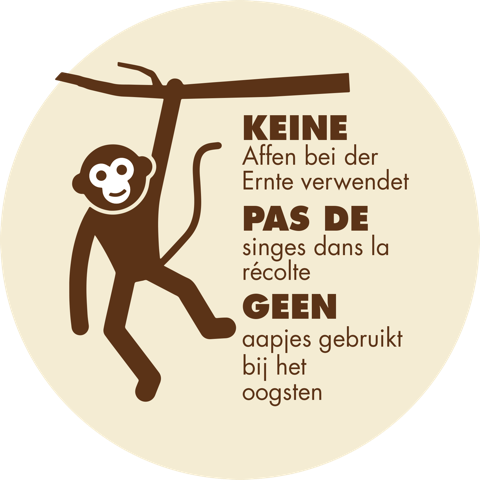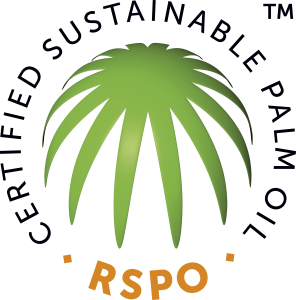The Origin of Amanprana Coconut Oil and Red Palm Oil
The Origin of Amanprana Coconut Oil and Red Palm Oil

Origin of Amanprana’s Fair Trade and Extra Virgin Coconut Oil from Sri Lanka. Amanprana coconut oil is of the best quality. The Amanprana coconut oil comes from plantations in the Puttalam region of Sri Lanka. Puttalam is located in the middle of the Coconut Triangle (Kurunegala, Puttalam and Colombo). The taste and quality of the coconut oil is of course partly dependent on the region where the coconuts grow and the quality of the soil and weather conditions, which are the first pillars for a delicious coconut oil.
First, the coconuts are manually removed from the trees. They are then peeled; the coconut water is tapped from the nut and the hard brown skin is removed. This leaves only the white coconut flesh. From this white flesh, the coconut oil is mechanically cold-pressed. The coconut oil is then filtered and packaged. Our coconut oil is 100% pure and natural, without any other processing or additions.
At Amanprana we find it important to give something back to both people and the earth. The coconut oil from Amanprana is Fair Trade. More than 300 families from the Philippines and Sri Lanka are employed thanks to Amanprana’s own Fair Trade charter. What we used to pay to official control organizations, we now invest in the Fair Trade fund. 5% instead of the former 3% of coconut purchases go to the fund.
The money Amanprana makes available is used for education, health care, environment, infrastructure, means of production for farmers, workers and suppliers. The families can count on a guaranteed minimum price that must be able to cover all costs for sustainable production.
Read more about FairTrade and Fair World

Our red palm oil comes from families of small-scale palm growers in the Magdalena and Bolivar region, in Colombia. Our Red Palm oil has received the quality mark for sustainable palm oil from the RSPO (Roundtable for Sustainable Palm Oil) license number: 9-1443-16-100-00. Amanprana also donates one tree, to be planted in the Colombian rainforest, for every liter of red palm oil sold through WorldLandTrust and ProAves.
In their book “Far Beauty” or the original Italian title “L’arte Del Corpo”, Bertie and Dos Winkel photographed an individual fully integrated into his environment. An individual who cannot exist without his group. Isolated tribes are in danger of being lost due to Western influences. Just as biodiversity is threatened to be lost by monocultures. Out of respect for local rituals and to make the West more aware that it should not impose its stifling uniformity on diversity between cultures. This is why Amanprana uses one of the photos from this wonderful book to draw more attention to this challenge: to preserve and respect the biodiversity between people, cultures and tribes. There are more than 600 types of palm trees that are in danger of disappearing due to monocultures for palm oil production.
Amanprana supports the Colombian environmental organisation ProAves through the World Land Trust. They protects the habitat of birds (eg the yellow-eared parakeet) and amphibians that are threatened with extinction. Their goal is to preserve Colombia’s natural resources and biodiversity by stopping game harvesting and deforestation. Visit the ProAves website for more information.
Under the sponsorship of Sir David Attenborough, the World Land Trust (WLT) is committed to protecting the rainforest and its 10 million plants and animals. 1 tree is saved per liter of Amanprana’s Red Palm. Thanks to Amanprana and our fans, ProAves has already been able to purchase 39 hectares of Colombian rainforest (around 80 football pitches).
Amanprana red palm oil comes from families of small-scale Colombian palm growers in the Magdalena and Bolivar regions. Partly thanks to Amanprana’s request, they received a bio certificate. The small-scale “Alliances for Peace” are a model for the economic development of poor communities.
The Alliances receive a bonus for their bio certification, education, health and sustainability. The palm fruit comes from small-scale alliances to Daabon, which presses it according to the rules of art. In short: Everyone happy: you, the growers and Amanprana.
White palm oil in organic and non-organic products is, according to Amanprana and many others, unhealthy oil. The healthy components are removed during the process of refining, like many carotenes and various vitamin E’s. Palm oil is naturally an orange-red colour. 95% of all palm oil used in organic and non-organic food is not sustainable in our eyes. In our opinion, the RSPO label is also not sustainable enough.